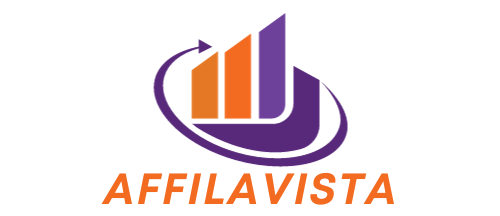In today’s competitive online marketplace, affiliate marketing has become a popular way for individuals and businesses to earn passive income. But with so much competition out there, how can you ensure that your affiliate marketing efforts stand out from the rest? That’s where the role of SEO, or search engine optimization, comes in. By optimizing your website and content for search engines, you can increase your visibility and attract more targeted traffic to your affiliate links. In this article, we will explore the crucial role that SEO plays in affiliate marketing promotion and how it can help you achieve success in this ever-growing industry.
Definition of SEO
Search Engine Optimization (SEO) is the practice of optimizing a website to improve its visibility in search engine rankings. It involves various techniques and strategies to make a website more appealing to search engines, resulting in increased organic traffic and better online presence.
Website Optimization
Website optimization is a crucial aspect of SEO. It involves making changes and improvements to a website’s design, structure, and content to enhance its visibility and search engine ranking. This can include optimizing page loading speed, ensuring mobile-friendliness, and improving user experience.
Keyword Research
Keyword research is the process of identifying relevant and popular keywords that users search for when looking for information related to a specific topic. In affiliate marketing, keyword research helps determine the right keywords to target in order to optimize content and attract the right audience.
Content Creation
Content creation plays a vital role in SEO and affiliate marketing. It involves creating high-quality and engaging content that not only provides value to readers but also incorporates targeted keywords and relevant information. This helps improve search engine rankings and attract organic traffic.
Link Building
Link building is the practice of acquiring high-quality and relevant backlinks from other websites to improve a website’s authority and visibility in search engine results. In affiliate marketing, link building plays a crucial role in attracting referral traffic and increasing the credibility of a website.
Importance of SEO in Affiliate Marketing
Increased Visibility in Search Engines
One of the primary reasons why SEO is vital in affiliate marketing is that it helps boost the visibility of affiliate websites in search engine results. By optimizing a website according to search engine algorithms, it becomes more likely to appear on the first page of search results, leading to increased visibility and exposure to potential customers.
Targeted Traffic Generation
SEO helps drive targeted traffic to affiliate websites. By carefully selecting and optimizing relevant keywords, affiliate marketers can attract users who are specifically searching for products or services related to their niche. This targeted traffic is more likely to convert into sales or leads, resulting in a higher return on investment (ROI).
Improved Conversion Rates
Another significant benefit of SEO in affiliate marketing is improved conversion rates. When a website is optimized for relevant keywords and provides valuable content, it attracts users who are genuinely interested in the affiliate products or services. This targeted traffic is more likely to convert into paying customers, leading to increased affiliate revenue.
Cost-Effective Marketing Strategy
Compared to other marketing strategies, SEO is a cost-effective approach in affiliate marketing. It allows affiliate marketers to reach a wide audience without spending a significant amount on paid advertising. While SEO requires time and effort to implement, the long-term benefits and consistent traffic it generates make it a cost-effective marketing strategy.
Keyword Research in Affiliate Marketing
Identifying Relevant Keywords
In affiliate marketing, identifying relevant keywords is crucial for attracting the right audience. This involves comprehensive research to understand the search terms and phrases that users are using to find information related to the affiliate products or services. By identifying relevant keywords, affiliate marketers can optimize their content and increase their chances of ranking higher in search engine results.
Long-Tail Keywords
Long-tail keywords are longer and more specific phrases that users search for. These keywords are less competitive and often have higher conversion rates. By incorporating long-tail keywords in their content, affiliate marketers can attract highly targeted traffic and increase the chances of conversions.
Competitor Analysis
Understanding the competition is essential in affiliate marketing, particularly when it comes to keyword research. By analyzing competitors’ websites and the keywords they are targeting, affiliate marketers can identify gaps and opportunities in the market. This allows them to optimize their content and target keywords that their competitors may be missing.

Optimizing Affiliate Websites for SEO
Title Tags and Meta Descriptions
Title tags and meta descriptions are HTML elements that provide information about a webpage’s content to search engines. Optimizing these elements with relevant keywords and compelling descriptions can significantly impact search engine rankings and click-through rates.
Keyword Placement in Content
Proper keyword placement within the content is crucial for SEO optimization. Affiliate marketers should strategically incorporate keywords in titles, headings, and throughout the body of the content to signal its relevance to search engines. However, it is important to avoid keyword stuffing, as this may negatively affect the website’s ranking.
SEO-Friendly URLs
Creating SEO-friendly URLs is essential for optimizing affiliate websites. URLs should be descriptive, concise, and include relevant keywords whenever possible. This not only helps search engines understand the content of the page but also makes it easier for users to navigate and share the URL.
Mobile Optimization
With the increasing use of mobile devices for internet browsing, mobile optimization is crucial for SEO success. Affiliate marketers should ensure their websites are mobile-friendly and provide an optimal browsing experience across different devices. This includes responsive design, fast loading times, and easy navigation.
Site Speed Optimization
Site speed is an important factor in SEO ranking and user experience. Slow-loading websites can negatively impact search engine rankings and increase bounce rates. Affiliate marketers should optimize their websites for fast loading times by minimizing image sizes, reducing server response time, and utilizing caching techniques.
Content Creation and SEO
Original and Engaging Content
Creating original and engaging content is essential for SEO success in affiliate marketing. Search engines prioritize valuable and unique content that provides relevant information and addresses users’ needs. Affiliate marketers should focus on creating high-quality content that stands out from the competition and keeps users engaged.
Optimized Headings and Subheadings
Headings and subheadings not only improve the readability of content but also play a crucial role in SEO optimization. Affiliate marketers should incorporate targeted keywords in headings and subheadings to signal the relevance of the content to search engines. Well-structured headings also make it easier for users to navigate the content.
Keyword Density
Keyword density refers to the number of times a keyword appears in relation to the total number of words in a piece of content. While it is important to include keywords in the content, affiliate marketers should maintain a natural keyword density to avoid keyword stuffing. Aim for a keyword density of around 1-2% for optimal SEO results.
Internal and External Linking
Internal and external linking are important aspects of SEO for affiliate websites. Internal linking refers to linking to other pages within the same website, while external linking involves linking to authoritative and relevant external sources. Both types of linking help search engines understand the context of the content and improve the website’s credibility.
Link Building Strategies for Affiliate Websites
Guest Blogging
Guest blogging involves writing and publishing content on other websites within the same niche. Affiliate marketers can leverage guest blogging to build relationships with other website owners, gain exposure to new audiences, and acquire high-quality backlinks. This helps improve the website’s authority and search engine rankings.
Social Media Influencers
Partnering with social media influencers is an effective way to build brand awareness and attract referral traffic to affiliate websites. By collaborating with influencers who have a large and engaged following, affiliate marketers can increase their visibility and reach potential customers. Additionally, social media influencers may also provide valuable backlinks to the affiliate website.
Content Syndication
Content syndication involves republishing content on multiple platforms, such as article directories or content aggregators. This strategy allows affiliate marketers to reach a wider audience, generate more backlinks, and improve search engine rankings. However, it is important to ensure that syndicated content includes proper attribution and is not seen as duplicate content by search engines.
Backlinks from High Authority Sites
Acquiring backlinks from high authority websites is a valuable SEO strategy for affiliate marketing. Affiliate marketers should focus on building relationships with reputable websites within their niche and seek opportunities to collaborate or contribute content. Backlinks from high authority sites not only improve search engine rankings but also increase the website’s credibility and trustworthiness.
Using SEO to Attract Targeted Traffic
Optimizing for Specific Niches
In affiliate marketing, targeting specific niches is essential to attract the right audience. By conducting thorough keyword research and optimizing content accordingly, affiliate marketers can ensure that their website appears for relevant search queries within their niche. This helps attract highly targeted traffic that is more likely to convert into sales or leads.
Optimizing for Geographical Locations
For affiliate marketers targeting local or regional audiences, optimizing for geographical locations is crucial. By incorporating location-specific keywords and optimizing content for local search, affiliate websites can appear in local search results and attract users who are more likely to convert. This is particularly useful for affiliate marketers promoting location-specific products or services.
Tracking Organic Search Rankings
Tracking organic search rankings is important to monitor the effectiveness of SEO efforts in affiliate marketing. By regularly monitoring search engine rankings for target keywords, affiliate marketers can identify areas for improvement and adjust their strategies accordingly. This helps ensure that the website continues to attract organic traffic and maintain a competitive edge.
Monitoring and Measuring SEO Success
Google Analytics
Google Analytics is an invaluable tool for monitoring and measuring SEO success. It provides detailed insights into website traffic, user behavior, conversion rates, and other key metrics. Affiliate marketers can use Google Analytics to track the performance of their SEO efforts, identify trends, and make data-driven decisions to optimize their affiliate marketing strategies.
Conversion Tracking
Conversion tracking is essential in affiliate marketing to measure the effectiveness of different marketing campaigns and channels. By setting up conversion tracking, affiliate marketers can determine how many users complete desired actions, such as making a purchase or filling out a form. This data helps optimize marketing efforts and allocate resources effectively.
Ranking Tools
Ranking tools, such as SEMrush or Moz, can provide valuable information about search engine rankings and keywords. These tools allow affiliate marketers to track the rankings of their target keywords, monitor competitors, and identify opportunities for improvement. By staying up to date with changes in search engine rankings, affiliate marketers can adjust their strategies and stay ahead of the competition.
Competitor Analysis
Analyzing competitors is an important part of monitoring SEO success in affiliate marketing. By understanding what their competitors are doing well and where they are falling short, affiliate marketers can gain insights and identify areas for improvement. Competitor analysis helps benchmark performance, spot trends, and adjust strategies accordingly.
SEO and Affiliate Marketing Tools
Keyword Research Tools
Keyword research tools, such as Google Keyword Planner or Ahrefs, are essential for affiliate marketers. These tools provide valuable insights into search volume, competition, and related keywords. By using keyword research tools, affiliate marketers can identify the most relevant and high-traffic keywords to optimize their content and attract targeted traffic.
On-Page Optimization Tools
On-page optimization tools, such as Yoast SEO or Moz On-Page Grader, help affiliate marketers optimize individual webpages for SEO. These tools analyze factors such as keyword usage, readability, and meta tags to provide recommendations for improvement. On-page optimization tools make it easier for affiliate marketers to ensure their content is well-optimized and meets SEO best practices.
Link Building Tools
Link building tools, such as BuzzStream or Ninja Outreach, assist affiliate marketers in managing and automating their link building efforts. These tools help identify relevant websites, track outreach efforts, and monitor the acquisition of backlinks. By using link building tools, affiliate marketers can streamline their link building strategies and improve the efficiency of their outreach campaigns.
Rank Tracking Tools
Rank tracking tools, such as Serpstat or AccuRanker, allow affiliate marketers to monitor search engine rankings for target keywords. These tools provide insights into keyword performance, competitor rankings, and fluctuations in search engine positions. By utilizing rank tracking tools, affiliate marketers can stay informed about their website’s visibility and make necessary adjustments to their SEO strategies.
Conclusion
In conclusion, SEO plays a crucial role in the success of affiliate marketing. It helps affiliate marketers increase visibility in search engines, attract targeted traffic, and improve conversion rates. By conducting thorough keyword research, optimizing content, and implementing effective link building strategies, affiliate marketers can optimize their websites to rank higher in search engine results. Constant monitoring and measurement of SEO performance, along with the use of SEO tools, allow affiliate marketers to refine their strategies and achieve better results in their affiliate marketing promotion efforts.

